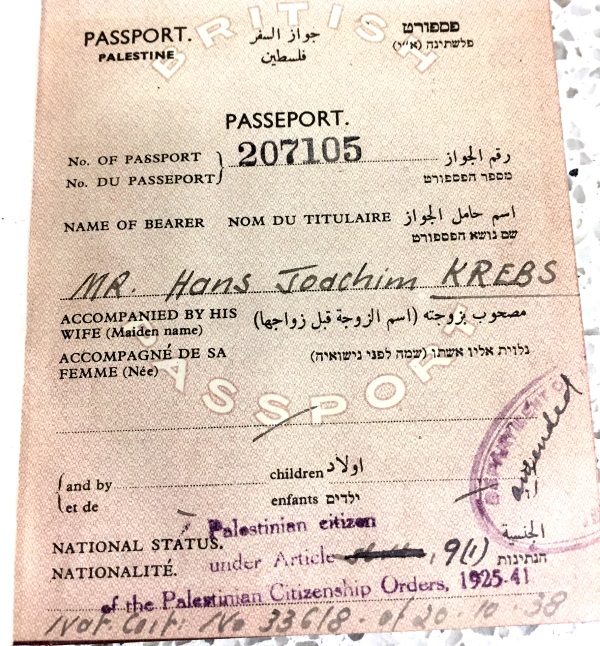A sex scandal juicy enough to be the plot of a Hollywood movie is currently roiling the Israeli justice system. A powerful man, multiple women, possible involvement in the highest places, and it all came crashing down. It could end well or badly for the nation, although it is definitely going to go badly for those involved. First, some background:
In most democratic countries, judges are appointed by the elected representatives of the people, or even elected directly. Supreme Court Justices in the US are appointed by the President and then confirmed by the Senate. But in Israel, almost every judge from the lowest local magistrate to the Justices of the Supreme Court, are picked by a nine-member Judicial Selection Committee. The committee consists of:
- The Justice Minister (currently Ayelet Shaked), and one additional minister, chosen by the cabinet members.
- Two members of the Knesset, customarily one each from the coalition and the opposition, chosen by the Knesset.
- Two members of the Israel Bar Association, chosen by a vote of the Association’s national council.
- The President of the Supreme Court, plus two other Justices of the Court.
The Justice Minister chairs the committee. Since 2014, at least one in each of the four categories must be a woman.
The first thing one notices is that there are five members of the legal profession and four politicians. The second thing is that the largest bloc is that of the Supreme Court members. The result has been what is often described as “the Supreme Court appointing itself.” Since legal establishment tends to lean Left, the makeup of the Court has also tended leftward.
Israel doesn’t have a constitution, and in place of one has several Basic Laws. Some of them – in particular the Basic Law: Human Dignity and Liberty – are relatively broad (compared, for example, to the American Bill of Rights), and have been interpreted quite creatively by the Supreme Court. In fact, the court has interpreted the Basic Laws to give itself the power to cancel laws passed by the Knesset, and to intervene in almost every area of Israeli life.
Many Israelis on the right side of the spectrum, including myself, find this extremely worrying. Where is democracy, if an unelected elite, especially one that is diametrically opposed to the will of the electorate, is given almost unlimited power to run the affairs of the nation?
Of course, if you ask them they will say that real democracy means following their instructions. It’s that redneck (whatever the Israeli equivalent is) Knesset which is anti-democratic. As philosopher-princes (and princesses), they know better.
Since becoming Justice Minister in 2015, Ayelet Shaked has tried to restore balance in the judicial system in general and on the Supreme Court in particular. Unable to change the system of selection, or (so far) to get a law passed that will enable the Knesset to override the court in some circumstances, she has worked to have somewhat more conservative Justices appointed to the Supreme Court.
But the real problem is the selection system. Not only is it undemocratic and heavily biased in favor of the existing judicial system, but there is a built-in conflict of interest: lawyers have great influence in choosing the judges that hear their cases.
Now for the juicy part. In the past week a scandal has erupted in which the (former) chairman of the Israel Bar Association, Efraim (Effi) Naveh, has been accused of arranging for the promotion of a female judge from a Magistrate’s Court to a District Court in return for sex with her; and also of trying to obtain a promotion for a male judge with whose wife – also a practicing lawyer – he was having an affair. Naveh also allegedly advanced the career of legal interns in return for sex.
Until last December, when Naveh was indicted for smuggling a woman in and out of the country without proper documentation – a story in itself rife with cinematic possibilities – he was a member of the Judicial Selection Committee. Of course, even if he had not been a member, as Chairman of the Bar Association, he had great power to influence it.
Although few details have come out – the police have hobbled the feverish Israeli media with an order not to publish the names of the women involved and other facts (although anyone with access to Google can quickly find out) – it’s beginning to look like these cases are the tip of a very disturbing iceberg, which can destroy confidence in the entire judicial system. Radical surgery will be necessary to rip out every trace of corruption, and we don’t know how deep it goes.
Naveh was a friend of the Attorney General (who had to recuse himself from this case). Worse, he worked closely with Justice Minister Shaked in her project to see fewer activist judges appointed to the Supreme Court. The Left is jumping up and down with glee trying to tar the previously squeaky-clean Shaked with Naveh’s brush. It is inconceivable to me that she could have known about his corruption without taking action, but everyone who could have any information is being called to give information to the police, including Shaked, the President of the Supreme Court, Esther Hayut, and every other member of the Judicial Selection Committee.
Naveh himself is probably going down, although his lawyer claims credibly that his cell phone, which contains incriminating text messages, was stolen and hacked. The female judge involved will likely argue that she was coerced by the powerful Naveh. If she can be convincing enough, she may escape bribery charges. Either way, her career is almost certainly over. The other woman, the male judge’s wife, has noted that her husband in fact was not promoted, despite her affair; hence, there was no crime committed. We’ll see.
The Bar Association, which also provides the Prime Minister with a short list of choices for Attorney General, has far too much power. The Attorney General, for that matter, has too much power and too much independence. These things should change.
It will be a disaster if Ayelet Shaked, who has been considered by some as a possible future Prime Minister, will turn out to have been aware of any of this. Naturally, her enemies – the unelected left-wing elite in the legal establishment and the media – already have their knives out.
But there could be a happy ending to the movie. That would be if the undemocratic selection committee could be abolished for once and for all, and a system for appointing judges that would be more responsive to the will of the Israeli people introduced. It would be a change long past due.


